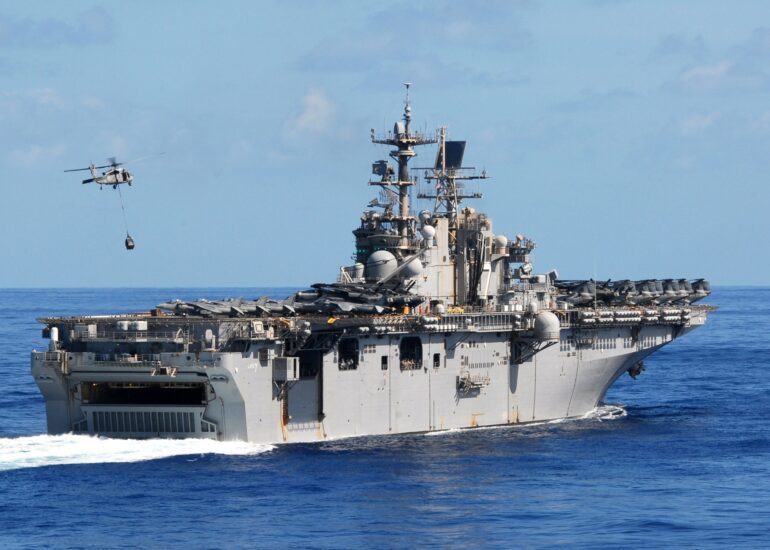President Donald Trump on Tuesday reportedly said the U.S. Navy carried out a strike against a suspected drug-running vessel departing Venezuela, underscoring his administration’s readiness to deploy American military power in the fight against narcotics trafficking.
“We just over the last few minutes shot out at a boat, a drug-carrying boat,” Trump told reporters during a White House press conference. “These came out of Venezuela. … we took it out.” The president declined to offer further specifics about the target or the American vessels involved, telling the press to await additional details.
The Pentagon later confirmed that the operation was a “precision strike against a drug vessel operated by a designated narco-terrorist organization,” but provided no further information.
The announcement comes as the U.S. military has stepped up patrols in the southern Caribbean, where several ships are now stationed off Venezuela’s coast.
Among them is the guided missile cruiser USS Lake Erie, which transited the Panama Canal over the weekend. The expanded presence has been viewed as a clear warning to cartels and to the regime of Venezuelan strongman Nicolás Maduro.
“The U.S. military conducted a lethal strike in the southern [Caribbean] against a drug vessel which had departed from Venezuela and was being operated by a designated narco-terrorist organization,” Secretary of State Marco Rubio wrote on X.
For years, U.S. officials have accused Maduro of running Venezuela not as a democracy, but as a state deeply entangled with organized crime.
In 2020, American prosecutors indicted the socialist leader on narcotics trafficking charges, and earlier this year the administration increased a criminal bounty on Maduro to $50 million.
Officials allege that the dictator and his lieutenants maintain ties with powerful gangs such as Tren de Aragua and the Cartel de los Soles.
Washington has also linked other top Venezuelan military and intelligence figures to transnational criminal networks, charging them with helping traffic narcotics throughout the hemisphere.
Venezuela has rejected these allegations, dismissing them as U.S. propaganda intended to justify regime change. Caracas has mobilized civilian brigades in preparation for what it claims is an imminent American invasion, while regional governments have urged caution but largely avoided direct criticism of the U.S. military buildup.
For the Trump administration, the strike represents the latest demonstration of a broader willingness to take bold action against drug traffickers. Less than a month ago, a U.S. Coast Guard unit fired on suspected narco-vessels south of Mexico.
White House spokesperson Karoline Leavitt, asked whether a wider invasion of Venezuela was under consideration, said last week that Trump is prepared to deploy “every element of American power” to combat narcotics trafficking.
With U.S. Southern Command directing operations in the region, both the State Department and the Pentagon referred further inquiries to the White House, which did not immediately respond to requests for comment.
By taking direct action against vessels linked to Venezuela’s narco-networks, Trump signaled that his administration is not content to merely sanction Maduro and his allies, but is prepared to strike decisively at the heart of the cartels that profit off instability in the hemisphere.
[READ MORE: Graffiti Targets Home of Times Executive Editor Amid Gaza Coverage Disputes]





